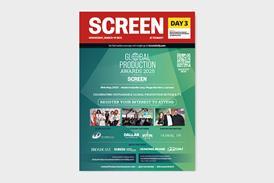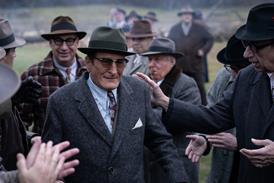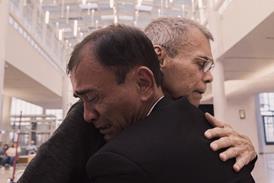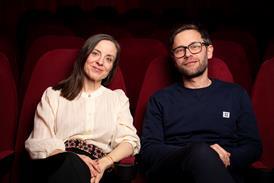The documentary producers talk about financing hard-hitting documentaries, the importance of social campaigns, and their latest film Semper Fi, which plays this week at SilverDocs.
New York-based brothers Jedd and Todd Wider were successful businessmen (as a hedge fund lawyer and plastic surgeon, respectively) before unleashing their passion for documentary film.
Their company Wider Film Projects has worked on hit documentaries including Oscar-winning Taxi To The Dark Side by Alex Gibney, Morgan Spurlock’s What Would Jesus Buy?, and Client #9: The Rise and Fall of Eliot Spitzer.
Their most recent production, Semper Fi: Always Faithful directed by Rachel Libert and Tony Hardmon, had its world premiere at the Tribeca Film Festival and and will screen this week at SilverDocs in Silver Spring, Maryland. The story follows a Marine Corps veteran, Jerry Ensminger, who loses his daughter to leukaemia and then discovers that the military was involved in a shocking cover-up over water contamination that could have caused her illness.
Upcoming films from the Wider brothers include another Gibney doc about “a very big international topic”; a documentary about love and relationships within the elderly; Paul Cronin’s A Time To Stir [about Columbia University protests in 1968], a project about teen suicides, and Micah Garen and Helene Carleton’s The Road to Nasiriyah, about the looting of Iraqi archaeological sites.
With Semper Fi, how did this story come to you, did the directors bring it in?
Jedd Wider: The idea came to Rachel [who they previously worked with on 2006’s Beyond Conviction] and Tony and we sat down with them after they had learned of the cover story and the efforts Jerry had been through over the last 15 years. And for us it was a topic that was important to us – we are very focused on on films that have some sort of socio-political resonance. In this case, this is about a real American hero who is a very powerful, compelling figure on screen and in person.
Todd Wider: He loves the United States, he loves this country. As do we, that’s why we make the kinds of films we do. This is a great country, but we can make it better. We are patriotic but we want things that are troubling us to get better. There is an emotional journey in this film. He’s a real American hero, he’s made a difference.
How did you get involved in filmmaking, after having your own successful businesses?
Jedd: For us the motivation comes from what Todd just said. We are very focused on sourcing films and ideas that resonate on a social level and a political level, topics that we want to explore and investigate that can culminate in a film that can have some sort of positive effect.
Todd: We’ve explored issues from homelessness to US policy towards torture, to hate crimes. We also get involved in outreach campaigns. You don’t want a film to get made and end up in the top desk drawer, you want it to be seen. It’s an artform that you want people to watch and effect something.
Other than grants, are your films mostly financed through private equity?
Todd: Yes, we have access to private equity, both from the US and international sources. It depends on the project, we’re now looking a project that would be a co-production with Argentina.
[With Semper Fi] it was relatively easy to finance, it was from a mixed group of sources. Also this one really lends itself to remake rights, [Jerry] could be played by any number of big Hollywood actors. [The film is sold by The Film Sales Company.]
Is it hard to finance films, especially for hard-hitting topics?
Todd: You have to be attentive to the bottom line, what you allow costs to be, to have your eye on the ball – that’s the reality of making films today. Documentary filmmaking is not about private trailers and caviar.
Jedd: This is a private equity play, you need to treat the film like you would any other thoughtful investment.
Do you always think of the international market even those most of these films are American stories?
Todd: We pick the film based on the topic. There is always that concern that you want to sell that film but the first thing that we go for is the story, and hopefully that will appeal to a wide audience. Look how well Client 9 did abroad. It’s like a Greek tragedy, that’s not just US politics.
Jedd: At the forefront of our mind always is distribution, we don’t want to make a film just for the sake of making a film. The topics that we do choose have an importance to them. Securing distribution for the films is critical. We want to get it out there and build a campaign around it.
Are you hopeful about new models for documentary distribution?
Todd: In certain cases, the VOD model is an amazing model, especially for documentaries. For a limited P&A you can access a large market and reap more rewards. And there is also the educational market which can expand the shelf life for films. The old model of spending a lot on P&A and hoping to make it back with theatrical, that can still work for some films but this is a day and age when you have to be creative.
Do you ever want to work in fiction?
Jedd: Effecting social change is really at the core of what we do and what we believe in. There really is no medium better to achieve that than documentary filmmaking. Some topics, however, are better served treated by fiction.
Todd: We have two features that we’re working on. The first one is about an American woman who was a member of the German resistance in World War II, who died in Germany. It’s a true story, we have the rights to her biography and have been working on the screenplay for a while. It’s a very powerful story of this American heroine, it’s a great role for an actress. Her story has not been told. We started looking at it as a documentary, but then thought, ‘We can do a feature with this.’ We’re going to go out with that soon.





















No comments yet